 THINKING LIKE A
HISTORIAN:
THINKING LIKE A
HISTORIAN:
MANIFEST DESTINY
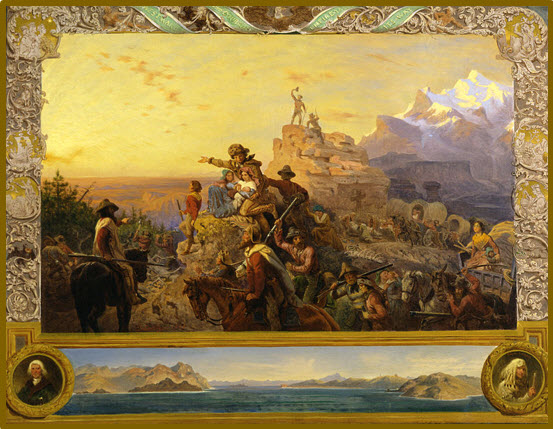
Westward Course of Empire:† Emanuel Leutze, 1861
Unit
Overview
The
concept of Manifest Destiny, a phrase first used by John OíSullivan, encouraged
Americans to view the occupation of the North American continent as their
God-given right.† It motivated settlers
to move west and gave them confidence in the future.† At the same time, Manifest Destiny was used
to justify the removal of Native Americans from their lands and the expansion
of slavery. †Letís see how it all
happened.
Manifest
Destiny
Since
colonial times, some Americans believed that their nation had a special mission
to fulfill.† By the 1800s, people began
to think that the country should spread its ideals and its culture by occupying
the entire continent.† For many, it was
simply part of Godís divine plan.† The
idea that the United States had a special role to play inspired men and women
to dream big dreams and motivated them to move west.† For this to continue, the United States had
to acquire more territory through negotiation or war.† At the same time, political leaders used this
to justify the removal of Native Americans from their lands, the annexation of
Texas and threats of war against Great Britain over Oregon.† When writing an article about the importance
of making Texas part of the United States, John
OíSullivan, a newspaper editor, referred to this concept as Manifest Destiny.† In other words, it was the obvious fate of
the United States to rule from the Atlantic to the Pacific.
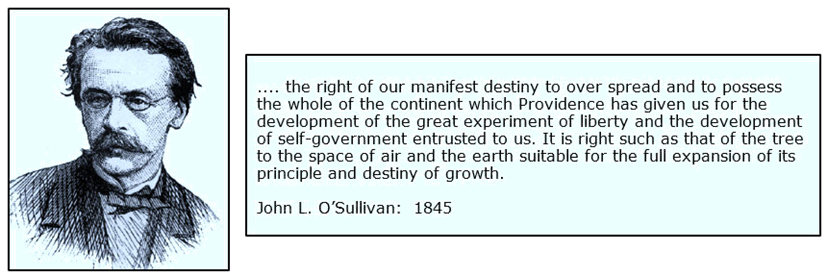
The
desire to expand the borders of the United States to the western edge of the
continent was not accepted by everyone.†
Critics argued that Manifest Destiny had nothing to do with Godís
will.† They saw it as a way to defend the
seizure of someone elseís land.† Was
Manifest Destiny just an excuse to takeover more territory, or did it represent
the nationís true mission?† During the
1830s and the 1840s, these questions became the subjects of many heated
debates.† The video listed below further
explains the philosophy of Manifest Destiny.
 ††Go to
Questions 1 through 3.
††Go to
Questions 1 through 3.
The
Argument for Manifest Destiny
The
expansionists, as those who favored Manifest Destiny were called, thought of
the United States as a nation on a mission.†
In their opinion, the country had an obligation to bring its advanced
civilization, along with its superior technology and culture, to the West.† They claimed that the rapidly growing
American population required more land for settlement and agriculture.† Manifest Destiny would result in greater
opportunities for Americans and more states.†
The expansionists also argued that extended borders made it easier to
defend and to secure the United States.†
Although the power to add territory was not specifically mentioned in
the Constitution, expansionists insisted that it was covered under the implied
powers.† ††Read the primary sources quoted below to learn
more about the attitudes of those Americans who supported Manifest Destiny.†
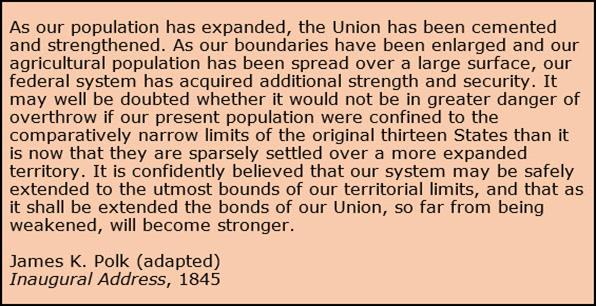
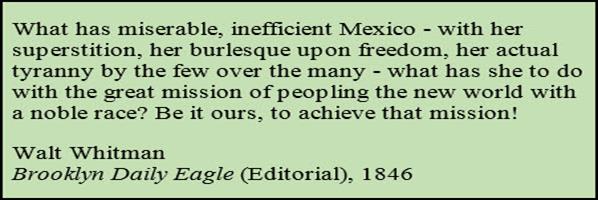
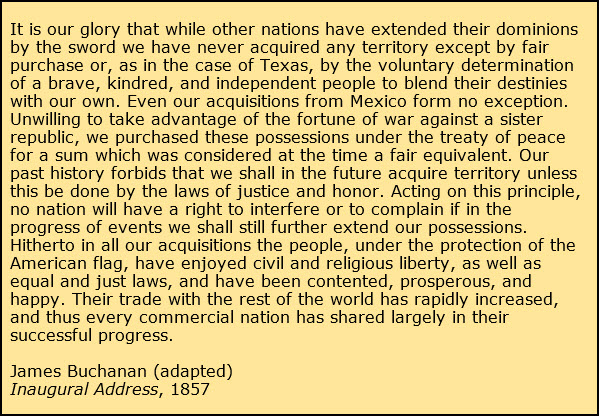
 † Go to Questions 4 through 14. †
† Go to Questions 4 through 14. †
The
Argument against Manifest Destiny
The
opponents of Manifest Destiny insisted that it did not represent a noble
mission.† Instead, they believed that it
was based on greed and disrespect for the rights of others.† For them, Manifest Destiny resulted in the
cruel treatment of Native Americans and the growth of slavery.† It also increased the tension among the
United States and foreign governments, such as Mexico and Great Britain.† Some anti-expansionists declared the concept
unconstitutional because the acquisition of land was not directly discussed in
the Constitution.† Critics of Manifest
Destiny disputed the idea that the growing population made additional territory
a necessity.† They also reasoned that it
made the country less secure since it spread the U.S. military across the
continent.† The primary sources quoted
below are examples of the arguments presented against Manifest Destiny.
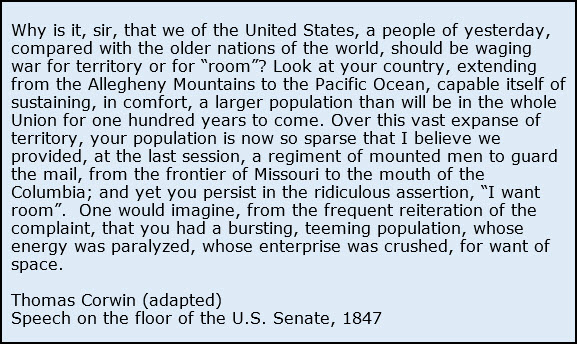
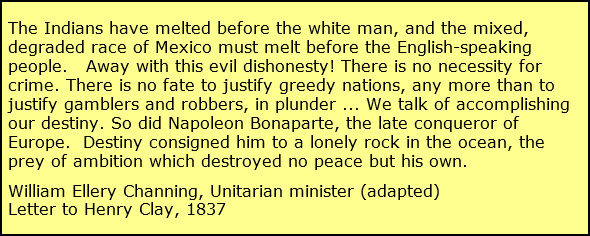
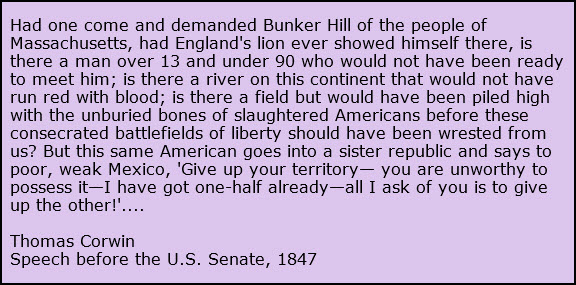
 † Go to Questions 15 through 25. †
† Go to Questions 15 through 25. †
What
Happened Next?
Statehood
for Texas did not mark the end of the disagreements between the United States
and Mexico.† A dispute over the stateís
southern border resulted in the Mexican-American War and the sale of the entire
Southwest from New Mexico to California to the United States.† When gold was discovered in California,
thousands of travelers pushed across the Great Plains with the hope of getting
rich.† California soon had enough
settlers to become a state, but this request again threatened the balance
between slave states and free states.†
Would the slavery question split the Union?† Would Henry Clay come up with another
compromise?† You will find the answers to
these questions in the next unit.
 |
| Unit 27 Westward Expansion: Pros and Cons Worksheet |
| Unit 27 Time Machine (1845): Manifest Destiny and annexing California and Texas Article and Quiz |
| Unit 27 What's the Big Idea? Worksheet |